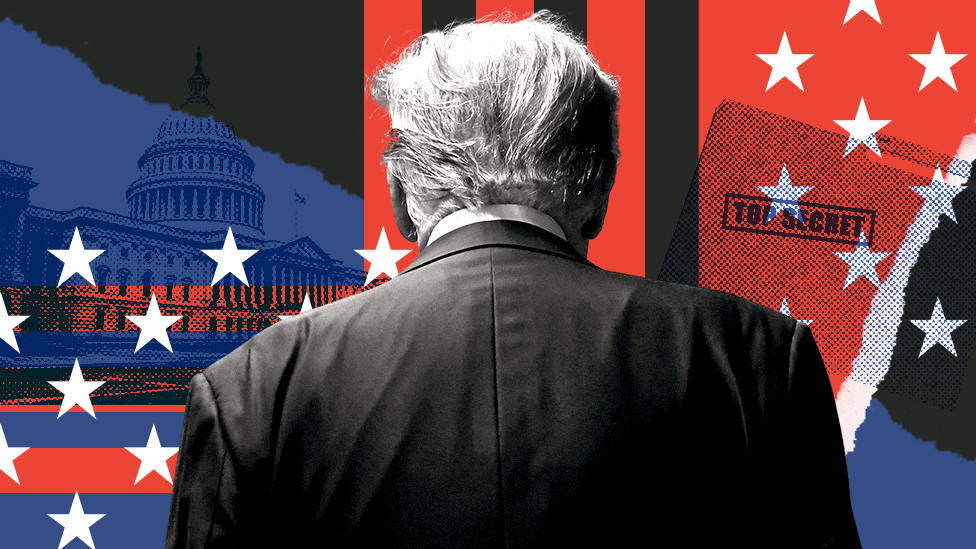New Hampshire Republican primary: Who are the main candidates?
- Published
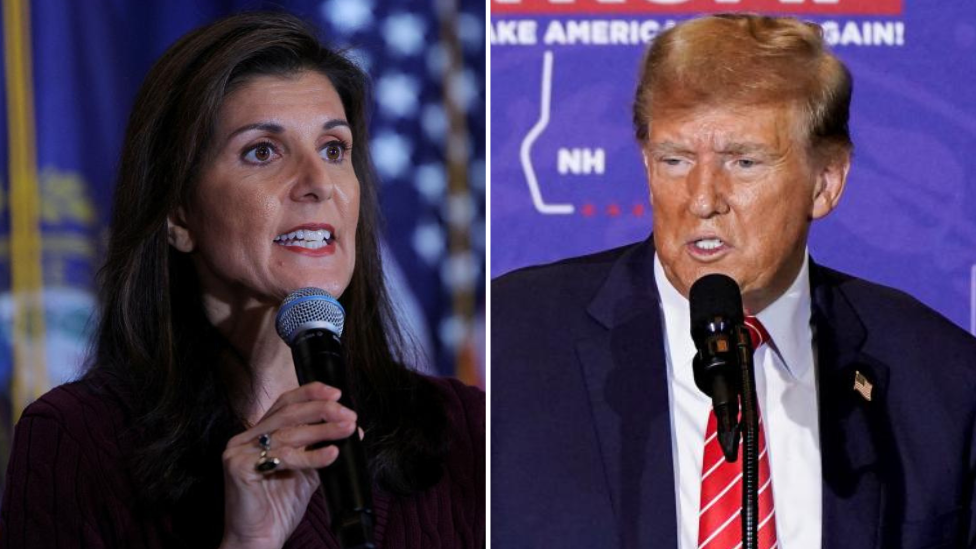
Nikki Haley and Donald Trump will face off in New Hampshire on 23 January
After months of campaigning, the list of Republican candidates for president has been whittled down to just two.
On Sunday, Florida Governor Ron DeSantis - who was expected to perform poorly in New Hampshire - dropped out of the primary race altogether.
Billionaire tech entrepreneur Vivek Ramaswamy and former Arkansas Governor Asa Hutchinson ended their campaigns after failing to win over voters in Iowa.
Former President Donald Trump is leading in the polls, but his last remaining challenger Nikki Haley could perform strongly in New Hampshire on 23 January.
The eventual winner will challenge the presumptive Democratic nominee President Joe Biden in November's general election.
Nikki Haley
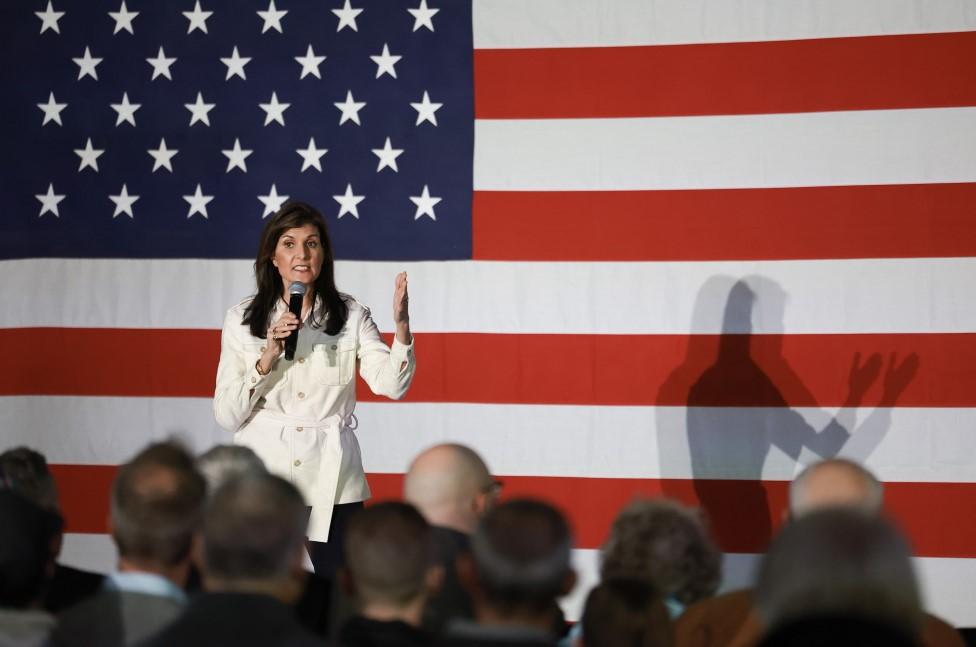
Nikki Haley was the first major Republican candidate to launch a campaign against Mr Trump, jumping in last February.
Born in South Carolina to Punjabi Sikh immigrants, Ms Haley, 51, became the youngest governor in the country in 2009. She earned national attention by calling for the removal of the Confederate flag from the South Carolina capitol after a man shot and killed nine people in a hate crime at a historically black church.
Despite saying she was "not a fan" of Mr Trump in 2016, she later accepted his nomination to be US ambassador to the United Nations, a tenure marked by her dramatic exit from a security council meeting while a Palestinian envoy spoke.
At events and debates, the race's lone woman has sought to find middle ground on hot-button issues and demonstrate her foreign policy expertise. She has also called for a "new generation" of leaders and for mental competency tests for politicians over 75 years old.
Her performance, along with an endorsement from conservative powerhouse Charles Koch, has pushed her poll numbers up since the first debate in August. She came close to second place in Iowa and polls show she has a chance at winning in New Hampshire, where independents can vote in the Republican primary.
A few recent slips on the campaign trail have pushed Ms Haley's team more into the defence. In the last few weeks she has had to defend her comment that slavery was not the cause of the US Civil War. And in an interview with CNN's Jake Tapper she had to explain recent on-air statements that the US was "never a racist country".
Donald Trump
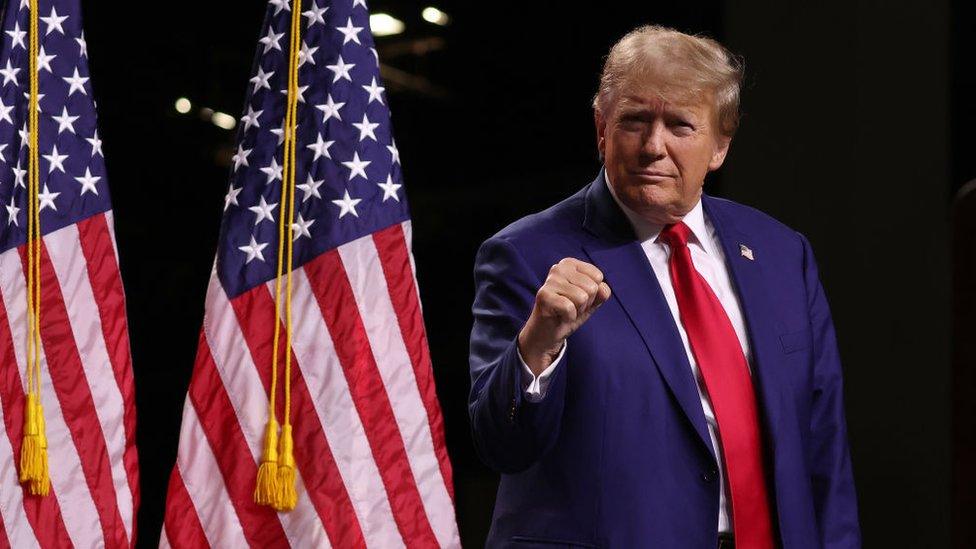
Donald Trump is sitting in the driver's seat for the final stretch before the caucuses - exactly where he has spent most of the past year.
Despite a turbulent four years in the White House, the 77-year-old has an iron-clad grip of much of the party base as well as a commanding lead in national polls. His closest challenger, Florida Governor Ron DeSantis, lost by 30 points in Iowa's first in the nation caucuses.
If Mr Trumps performs strongly in New Hampshire, he will reinforce his status as the frontrunner for the nomination. Mr DeSantis has endorsed him.
The former president has vowed to finish what he started if he is returned to the White House, including undoing the Affordable Care Act and expanding his southern border wall.
But his rhetoric has frequently caused concern on the campaign trail. He has also consistently repeated false claims that he won the 2020 election and accused Mr Biden of leading a "witch hunt" against him.
Mr Trump has made clear how he will attempt to use his legal woes to his advantage, turning courthouse steps and hallways into political stumps. Since the primary season began, he has made multiple stops to courtrooms in New York, verbally jousting with judges in cases against him, calling them "Trump-hating judges" and "biased".
Ron DeSantis pulls out
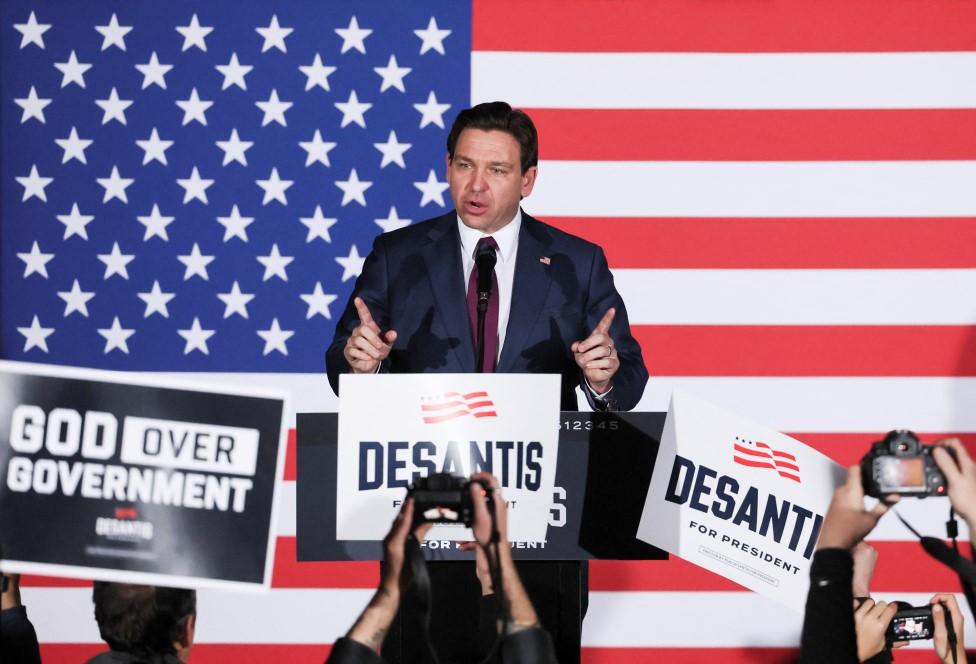
Mr DeSantis was once viewed as the candidate most capable of defeating Mr Trump, but his campaign was on the rocks when he dropped out two days before the New Hampshire vote.
In Iowa, he narrowly grabbed second place, receiving 2% more votes than Ms Haley, although he arguably campaigned the most among his Republican competitors in the Hawkeye State.
Prior to him quitting, Mr DeSantis's campaign had already given up any hope of winning in New Hampshire and pivoted towards South Carolina, which has a higher proportion of conservative voters.
But on Sunday, he admitted he didn't "have a clear path to victory" and endorsed Mr Trump.
- Published21 January 2024
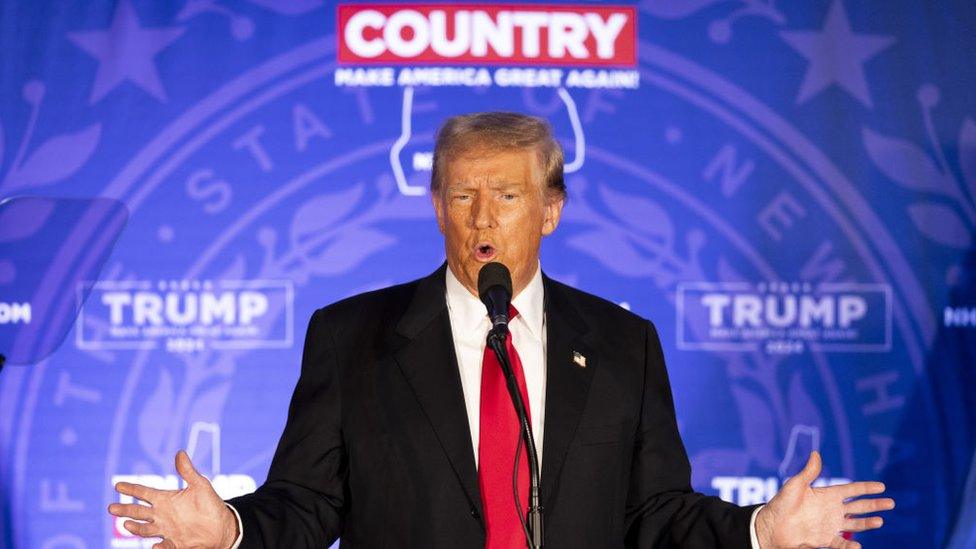
- Published16 November 2022
- Published11 November 2022
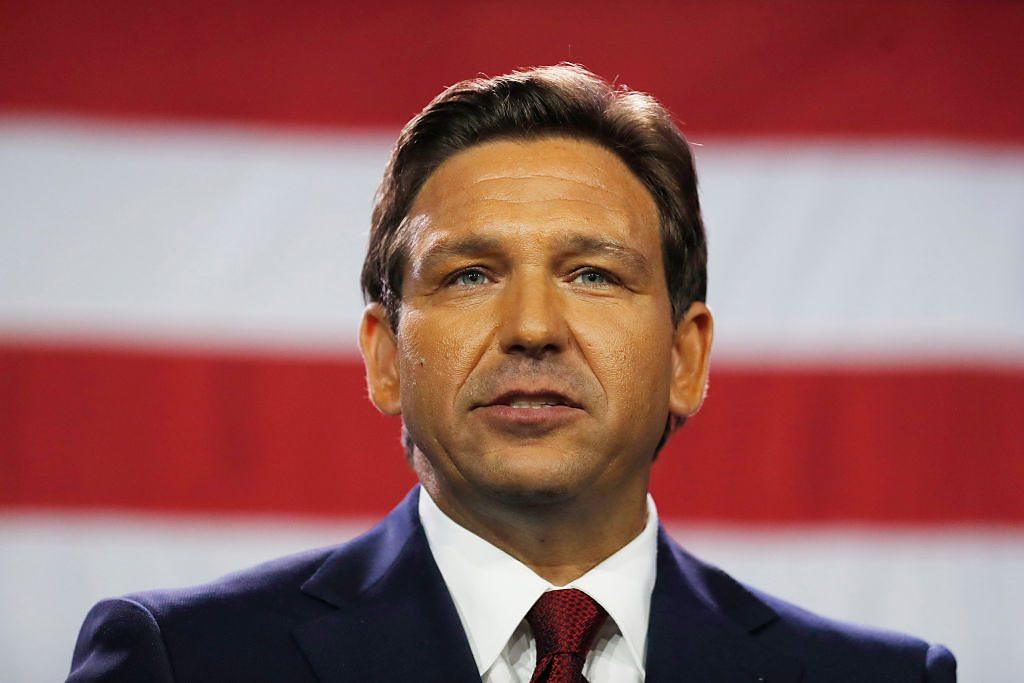
- Published7 November 2022
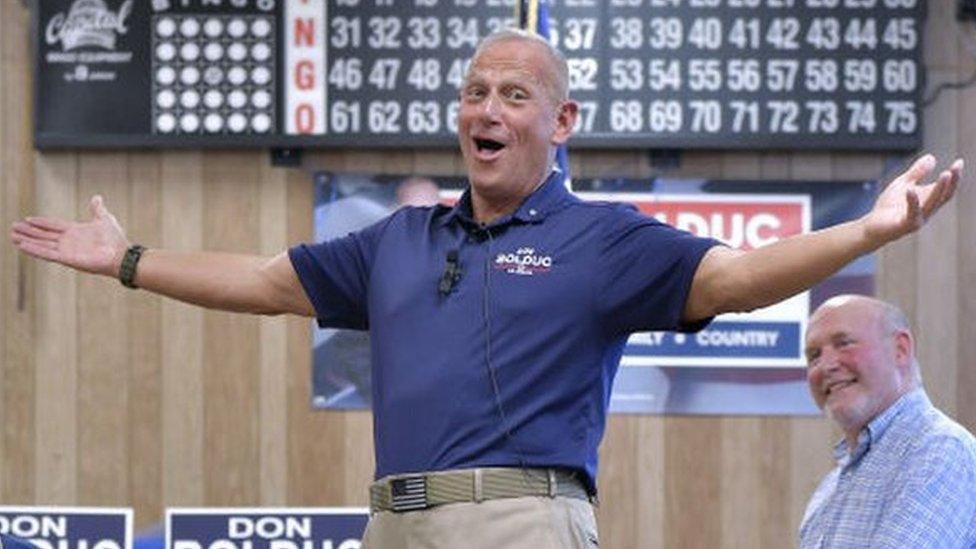
- Published28 August 2024
